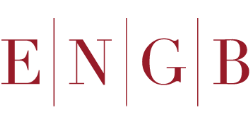ICANN Arbitration Procedure As a Domain Name Disputes’ Resolution
Web sites are developed substantially in our day and hence in the past years many large or small corporations, establishments, associations and persons etc. became web site owners increasingly, even the Turkish Commercial Code[1] sets out provisions in terms of the web sites that may be used by the companies. Within this fast-moving area “com” extension became inadequate over time and various risks surfaced for the owners of registered trademarks as the number of web sites that can be registered increased with new registrable extensions.
The third parties may use trademarks (including registered) as a domain name via a different extension as per the current legal regulations. Therefore it is possible for the company B to obtain website www.xyz.com or www.xyz.net on their behalf and to operate within the shoe industry whilst the company A which is operating within shoe industry already owns the website www.xyz.com.tr and the xyz registered domain, which is a clear example for third party usage. In this case, the company A may apply to civil and criminal legal procedures and request the identification of the website owners, the denial of access to the website due to trademark infringement, compensation, etc. In return, there will be a necessity to establish legal connection of the related website to the company B. The procedure for establishing this legal connection may impede the claim files for years as the owner or the content provider of the websites may appear as the companies that registered the websites which may also be established abroad. On the other hand decisions of the Turkish Courts for “denial of access” may become ineffective as they may be breached by the users via different applications and as a result the loss of the trademark owners increase each day that the website remains accessible. Also, the Turkish Courts cannot render a decision for transfer or cancellation decisions for the websites with extensions other than “com.tr” under no circumstances.
As explained within the example above, application to the ICANN is an effective method for these procedures which remain unsolved. ICANN arbitration procedure is dispute resolution which is required to be accepted during the domain registration. Therefore, in the event of a dispute the website owner is deemed to have accepted the resolution of the dispute by ICANN arbitration procedure even if the terms of this procedure are not known by the owner. ICANN arbitration procedure may resolve the disputes definitively in a much shorter period when compared to the standard arbitration procedure which is explained below:
- It is a faster way for dispute resolution compared to filing a claim for action,
- Denial of access for websites may be obtained globally,
- The ownership information may be obtained swiftly even for the websites which keep this information confidential,
- It is cheaper method compared to the litigation expenses,
- Most importantly it allows the transfer of the websites that are subject to the complaint to the owner of the trademark.
- ICANN Arbitration Rules
As it can be seen from the World Intellectual Property Organization (“WIPO”) website, websites with extensions such as “.com”, “.net”, “.org”, “.info”, “.mobi”,[2] etc., are websites that ICANN rules are applied to. Therefore, an application can be made to the ICANN arbitration administrative panel for preventing the use of “legally owned trademark” in bad faith.
- Approved Dispute Resolution Service Providers
The ICANN arbitration rules can only be enforced by the approved dispute resolution service providers. Within this scope, WIPO is the most demanded service provider for application of the ICANN arbitration rules.
- Legal conditions for application
The conditions required to make a successful application to ICAAN, i.e., to obtain the cancellation or transfer of the domain name are as below;
- The use of an identical or confusingly similar domain name by a third party,
- Having no rights or legitimate interests in respect of the domain name(s) that is/are the subject of the complaint,
- The use of the domain name in bad faith and for unlawful profit.
- Proving the Registration and Use in Bad Faith
Various methods for proving bad faith are set out within the ICANN application. For example, a person who is trying to divert the website users to the unlawfully used trademark and the confusingly similar website is deemed to be in bad faith.
Also, the panel submits the complaint to the owner of the confusingly similar website and request a reply when an application is made. If such person fails to submit a reply, this failure is accepted as bad faith and the panel directly decides for the transfer or cancellation of the domain name as per the application of the owner.
- Enforcement of the Decisions of the Administrative Panel and the Fees
The fees for arbitration and counsel are paid by the complainant party even if the application is successful. However, the fees will be divided between the parties if the complainant requested a single-member panel which was rejected by the other party.
According to the WIPO website, depending on the number of websites that will be complained by the trademark owner, $1500 is required to be paid for a single-member panel for 1-5 domain name application and $4000 is required to be paid for a three-member panel applications.
Within the scope explained above, it is evident that the ICANN arbitration procedure is one of the most effective ways for preventing unlawful use of trademarks via internet by requesting the transfer or cancellation of the domain names. We would like to note that Bağ&Günen Law Firm continues its practice within this area which requires an expertise knowledge.
[1] Numbered 6102.
[2] http://www.wipo.int/amc/en/domains/cctld/

